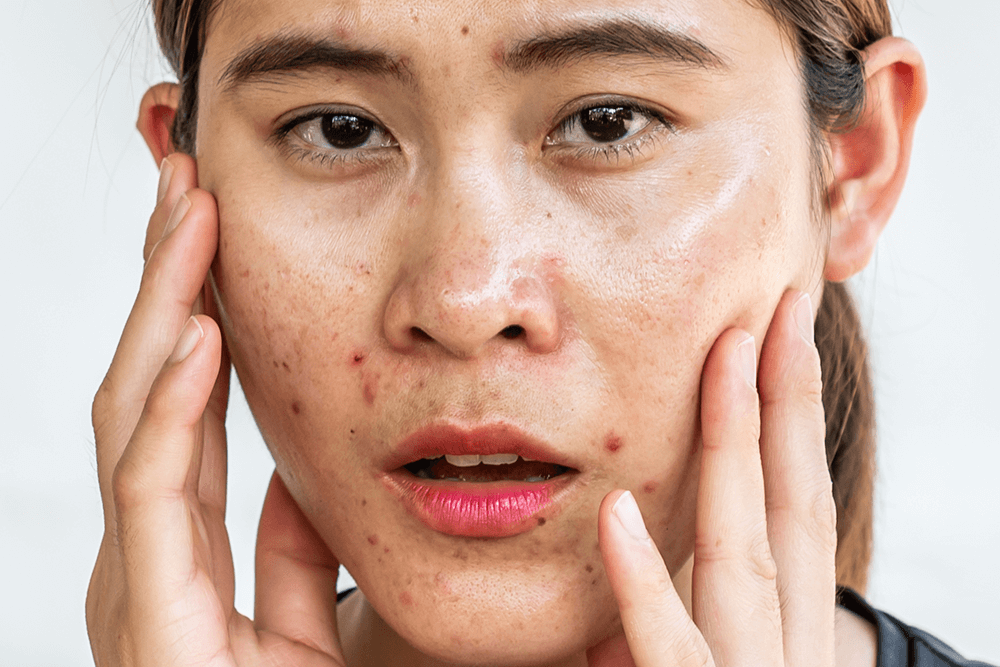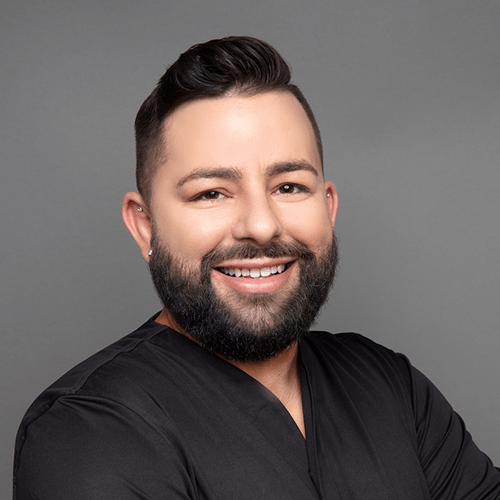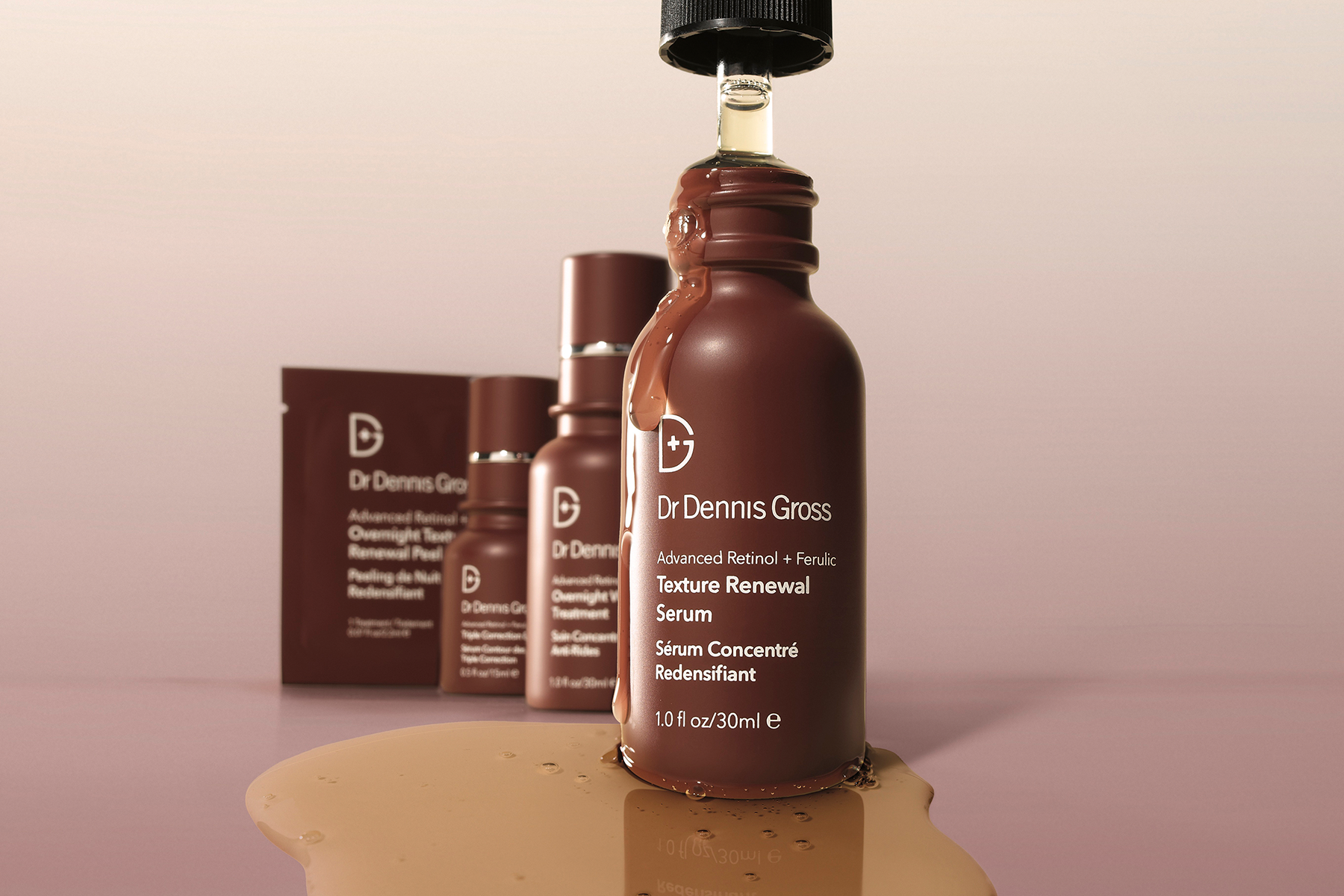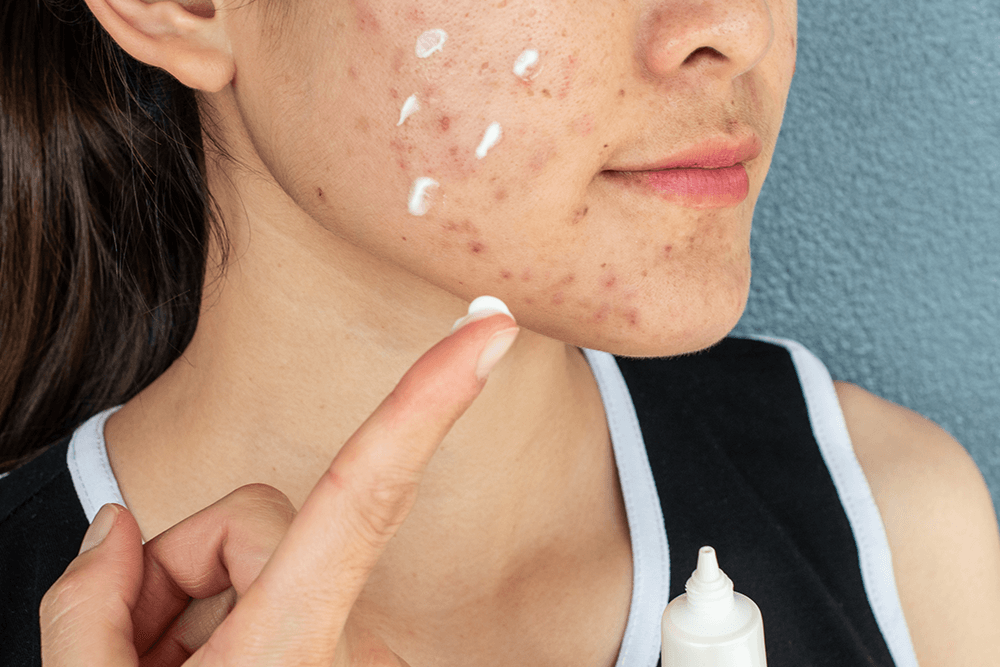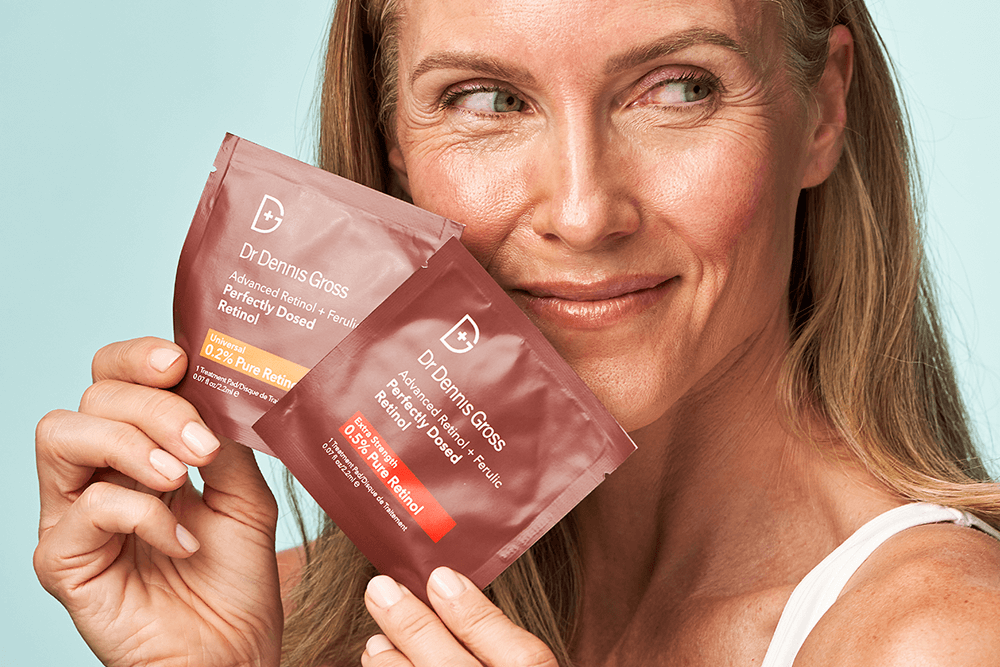The+Source
It’s pretty much universally accepted that retinol is an awesome thing that can be, quite literally, life changing. (If you think this is an overstatement, ask anyone whose chronic inflammatory acne has been cleared by steady, consistent retinol application and get back to us.) But among all of retinol’s glowing testimonials on social media, you’ll also find posts warning caveat emptor related to retinol purging (aka “retinol uglies”). But is that side effect enough to dismiss using retinol completely? Read on, then decide for yourself.
What is retinol?
Retinol is an over the counter, topical vitamin A derivative belonging to the retinoid family. In addition to sunscreen, retinol is the skincare ingredient your dermatologist is most likely to be using on themself. Applied to skin, retinol triggers a chemical chain reaction that leads to an increase in collagen production, a decrease in melanin manufacture, and increased cellular turnover. As a result, skin appears smoother, firmer, more even in tone, and is less likely to break out.
What is retinol purging?
In a nutshell, retinol’s only negative (and it’s not really a negative) is that the ingredient’s immediate skin impact is what’s known as “retinol purging.”
Dermatologists love retinol because it gets to work right away. But all of that stimulation is like hitting fast forward on whatever is brewing beneath your skin’s surface. If you have subterranean skin clogs, retinol is going to push all those blockages toward the exits, seemingly all at once. As a result, some first-time retinol users feel their complexions are actually getting worse once they begin applying retinol. However, once pores are flushed out, these flare-ups go away.
Retinol newbies often experience redness, peeling, or irritation in the beginning, regardless of whether or not their skin breaks out. That’s due to the cellular stimulation. Once skin acclimates to the new ingredient, those side effects will also disappear.
Of course, that’s cold comfort to the person who’s dealing with pimples and peeling simultaneously in the form of retinol purging. But have faith, because there is a light at the end of the tunnel.
How long does retinol purging last?
In general, a retinol purge is a one-time deal that takes about four weeks to complete, although the amount of time varies by skin type. (Speaking of, retinol isn’t a good idea for those with eczema, severe rosacea, or extremely sensitive skin.) If two months go by, and your skin is still freaking out, it’s time to reassess. It may be that your complexion is too delicate for retinol or that you have a deeper underlying issue that merits a derm visit.
How can you avoid retinol purging entirely?
That would be nice, right? While you may not be able to bypass the purge completely (after all, cellular stimulation is the ultimate end goal), you can take steps to minimize its effects. For starters, no one said you need to use your retinol every night. While nightly application may be the ideal (and night is the doctor-recommended time, as opposed to morning), you can work up to it by smoothing on your retinol every four nights, then moving to every three as your skin adjusts, and so on. You can also apply your retinol on top of your evening moisturizer, so it acts as a buffer. And look for retinol products that are formulated with soothing, anti-inflammatory ingredients, such as our Dr. Dennis Gross Advanced Retinol + Ferulic Texture Renewal Serum or our Dr. Dennis Gross Advanced Retinol + Ferulic Overnight Wrinkle Treatment. Both contain bakuchiol and rambutan, two botanicals known for their ability to reinforce the skin’s moisture barrier, which helps minimize the risk of irritation.
Don’t load on a thick layer of your retinol treatment, thinking that more will speed up the purging process. It won’t, and you’ll just end up irritating your skin. A pea-size amount will cover your entire face effectively.
Because your skin is behaving so temperamentally right now, you may want to ease up on any other exfoliation. Definitely do your Dr. Dennis Gross Alpha Beta Daily Peel in the morning and consider switching to Dr. Dennis Gross Alpha Beta Ultra Gentle Daily Peel if your skin seems especially inflamed.
While retinol purging is often accompanied by breakouts, and usually the last thing a person experiencing acne wants to do is add moisture to their skin, you absolutely must apply a moisturizer as part of your daily routine. Just ensure it’s an oil-free version, like our Dr. Dennis Gross Alpha Beta Daily Moisturizer. Otherwise, your skin condition won’t improve. And as always, don’t forget the SPF 30 every single morning!
The one thing you definitely do not want to do is quit using your retinol mid-purge. Doing so will bring you right back to square one when you decide to restart your regimen. It’s like beginning a running program, then quitting. When you decide to lace up your sneakers again, you’ll find that any cardiovascular strides you’d made (no pun intended) have disappeared and it’s as if you’d never trained at all. Same thing with retinol. The only thing to do is muscle through your period of retinol purging. The reward is on the other side, when you’re able to enjoy the skin-boosting benefits of retinol every day from then on.
Discover Dr. Dennis Gross Skincare for All Your Skincare Needs
For more skincare tips from the experts at Dr. Dennis Gross, check out our blog’s newest content today. Shop the collection of Dr. Dennis Gross bestselling skincare by dermatologists.
